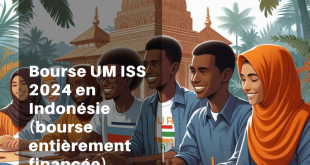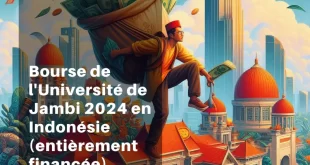First of its kind, this global award comes as an expression of the firm faith of His Majesty King Hamad bin Isa Al Khalifa, King of Bahrain, in young people’s potential to lead their communities, countries and the world towards a better shared future of peace and prosperity for all people on a healthy and sustainable planet, as envisioned by the world’s most ambitious plan to transform our world – The 2030 Agenda for Sustainable Development
The award recognizes young people’s endeavour to be effective and productive citizens, contributing to the welfare of their communities and environment, as well as institutions that improve the enabling environment and infrastructure for youth to make an impact.
The kingdom of Bahrain believes that investing in the capabilities, energies and ingenuity of young people brings about the best yields for sustainable development and future well-being of any nation.
That is why, at the national level, the kingdom prioritizes pioneering initiatives that help youth enhance their capabilities—through training, skill-building, and experience-exchange, to expand their opportunities to choose a future that they desire and contribute to the welfare of their community.
Young people make up one-third of the world’s population. They are an extraordinary force for the present and the future. They have unprecedented access to education, knowledge and scientific advancements and they are more connected through information and communication technologies than ever before.
The Kingdom of Bahrain offers a set of initiatives in the field of youth empowerment and skills development stemming from the Kingdom’s great faith in youth as the engine of developmental processes and the purpose of development. We continue to invest in young people as they are the world’s best chance to delivering on vision of Agenda 2030 and fulfilling the promise of the SDGs to leave no one behind, in a world that is more equitable and freer of want.
The award, led by the Ministry of Youth and Sports Affairs and implemented in collaboration with the United Nations Development Programme, was first launched during the United Nations Economic and Social Council (ECOSOC) Youth Forum, in January 2017 and the awarding ceremony took place in the Kingdom of Bahrain, in January 2018.
As of the 2018 Award Cycle, the King Hamad Award for Youth Empowerment to achieve the SDGs (KHA) includes two main categories; one for youth action, granting 5 Awards, and a second for youth enablers granting 3 Awards.
In 2020, the COVID-19 outbreak has wreaked havoc across the globe, deeply affecting people’s health, livelihoods, and prospects for the future, adversely affecting and—in some cases even reversing – gains made in the pursuit of the SDGs. Under its two categories, this year’s edition of the Award will take into consideration those youth-led and youth-enabling actions that help mitigate directly or indirectly the immediate, medium- and long-term impacts of COVID-19.
The focus will go not only on actions that help put the pursuit of the SDGs back on track, but also those that assist people and communities to build forward greener, smarter, and more inclusive, as communities and countries emerge from the COVID-19 pandemic.
Please refer to the Application Form for more details.
VISION
All youth around the world are able to actively engage in their communities as agents of change for sustainable development
MISSION
Recognize positive youth contributions from around the world, to the achievement of the 2030 Agenda for Sustainable Development and its 17 Sustainable Development Goals (SDGs), along with initiatives enabling youth participation, action and impact in pursuit of the SDGs
OBJECTIVES.
HIGHLIGHT THE CENTRALITY OF EMPOWERING YOUTH IN THE PURSUIT OF A BETTER FUTURE FOR ALL
INSPIRE IMPACTFUL ACTION FOR SUSTAINABLE DEVELOPMENT BY YOUNG PEOPLE WORLDWIDE
ENCOURAGE INITIATIVES ENABLING GENUINE YOUTH ENGAGEMENT & ACTION FOR SUSTAINABLE DEVELOPMENT
RECOGNIZING YOUTH CONTRIBUTION TO ACHIEVEMENT
OF THE SUSTAINABLE DEVELOPMENT GOALS
This category is open to applicants from all UN member states. Applicants can be individual youth above the age of 15 years and below the age of 35 years; a youth-led entity (defined as any entity, in which at least 50% of current management/leadership is below age of 35); or a youth-focused entity (defined as any entity, in which at least 90% of resources serve youth above 15 and below 35 years of age).
It includes up to five awards, each including a financial prize of USD20,000
Each of the possible 5 awards will recognize a unique and successful development initiative by youth in one of the 5 key aspects of sustainable development covered in Agenda 2030, namely:
- People: Ending poverty and hunger in all forms;
- Prosperity: Ensuring prosperous and fulfilling lives in harmony with nature;
- Planet: Protecting our planet’s natural resources and climate for future generations;
- Peace: Fostering peaceful, just and inclusive societies; and
- Partnership: Forging solid partnerships to implement Agenda 2030.
In evaluating submissions, jurors will consider the extent to which the development initiative has been informed by, or upholds, where applicable, key principles of holistic sustainable development underlying the vision of Agenda 2030, especially in the post-COVID reality, including:
- Integrated: Addressing, in an integrated manner, the three dimensions of sustainable development, economic, social, and environmental.
- No one behind: Leaving no one behind, which includes being inclusive and focusing on and prioritizing the farthest behind.
- Risk-informed: Incorporating risk prevention and management, and where applicable, forging links between development, humanitarian, and peacebuilding dimensions.
- Global outlook: Recognizing and addressing interlinkages between local action and global impact.
- Gender Balance: Helping to ensure that women and girls get full and equal opportunity to reach their full potential, thus enabling half of society to contribute to achieving full extent of development in line with the ambition of Agenda 2030.
- COVID relevance: Addressing the consequences of the outbreak of the COVID-19 pandemic on the pursuit of the sustainable goals; helping people, communities or countries cope and recover from the adverse, health, social and economic impacts of the pandemic; and contributing to preparedness of related challenges in the future.
In presenting the development initiative, submission narratives describing the initiative are expected to provide evidence of and/or elaborate on the following:
- Impact: Impact of the initiative on SDGs achievement and specific contribution to mitigating the immediate, medium- and long-term impacts of COVID-19, and taking action to better prepare for similar challenges in the future. Substantiated with:
- Quantifiable results, linked to specific SDG targets, and where possible, indicators for SDGs measurement.
- Validation of impact, through reference letters, one from people whose lives were affected by the initiative and another from a peer or mentor.
- Previous recognition of the initiative, if any, national or international.
- Scalability: If designed as a pilot or for small-scale of implementation, elaborate on potential for and feasibility of scaling-up the initiative to a larger, or national level, if applicable.
- Sustainability : Elaborate on measures to sustain and ensure future viability of initiative. If specific plans for sustainability had been elaborated, please include.
- Innovation : Elaborate on how the initiative goes beyond “business-as-usual” development action and incorporates creativity and innovation applying, the following principles for innovation as appropriate.
CATEGORY II RECOGNIZING ENABLERS OF YOUTH PARTICIPATION, ACTION AND IMPACT FOR SDGS ACHIEVEMENT
This category is open to entities that that are legally recognized and registered in a UN member state, in one of the following four sectors: 1) the governmental and public sector; 2) the private sector; 3) NGOs, Professional and Labour Organizations and Foundations; and 4) the media.
It includes up to three recognition awards. Winning submission from NGOs/Foundations only may be eligible for an accompanying financial prize of USD25,000.
Each of the possible 3 awards will recognize an initiative enabling genuine youth engagement & action for sustainable development in one of the following areas of enabling:
- Institutional: Dismantling institutional barriers and/or creating opportunities for youth participation and action (for example, initiating a strategy, policy, regulations, laws, initiative, etc.).
- Financial: Providing young people access to start-up financing and/or tools for enterprise viability and development, including incubating initiatives, or similar assistance.
- Technical: Providing young people with knowledge assets. technical know-how, skill-building support, including incubating initiatives, or similar assistance.
- Digital: Providing opportunities for tele-contribution and online engagement for youth during COVID-restrictive conditions and beyond through the recovery and preparedness phase.
In evaluating submissions, jurors will consider the extent to which the enabling initiative has supported genuine youth engagement and action for sustainable development. In presenting the enabling initiative, submission narratives describing the initiative are expected to provide evidence of and/or elaborate on the following:
- Impact: Impact of the initiative on enabling youth engagement and action for SDGs achievement and specific contribution to enabling youth engagement and meaningful action for mitigating the immediate, medium- and long-term impacts of COVID-19, and taking action to better prepare for similar challenges in the future. Substantiated with:
- Quantifiable results, providing numbers of young people benefiting and, where applicable amount of investment, for example:
- Number of youth enabled to engage in SDG action (by dismantling institutional barriers and/or creating opportunities to youth action);
- Amount of investment in youth SDG initiatives in the past year, by dollar amount and number of awardees, as relevant.
- Amount of investment in learning and upskilling activities for youth to pursue their SDG initiatives in the past year, by number of certifications awarded, as relevant.
- Validation of impact, through reference letters from youth enabled by the initiative to take action for the SDGs.
- Previous recognition of the initiative, if any, national or international.
- Quantifiable results, providing numbers of young people benefiting and, where applicable amount of investment, for example:
- Scalability: If designed as a pilot or for small-scale of implementation, elaborate on potential for and feasibility of scaling-up the initiative to a larger, or national level, if applicable.
- Sustainability : Elaborate on measures to sustain and ensure future viability of initiative. If specific plans for sustainability had been elaborated, please include.
- Innovation : Elaborate on how the initiative incorporates creativity and innovation applying, the following principles for innovation as appropriate; and
- Involvement: Elaborate on the extent of youth involvement in the design and implementation of the initiative
- COVID relevance: Enabling youth to meaningfully address the consequences of the 2020 outbreak of the COVID-19 pandemic on the pursuit of the sustainable goals; helping people, communities or countries cope and recover from the adverse, health, social and economic impacts of the pandemic, and contributing to preparedness of related challenges in the future.
Job Features
| Job Category | Opportunity |
 medjouel.com Study Non Stop
medjouel.com Study Non Stop



